Premium Only Content
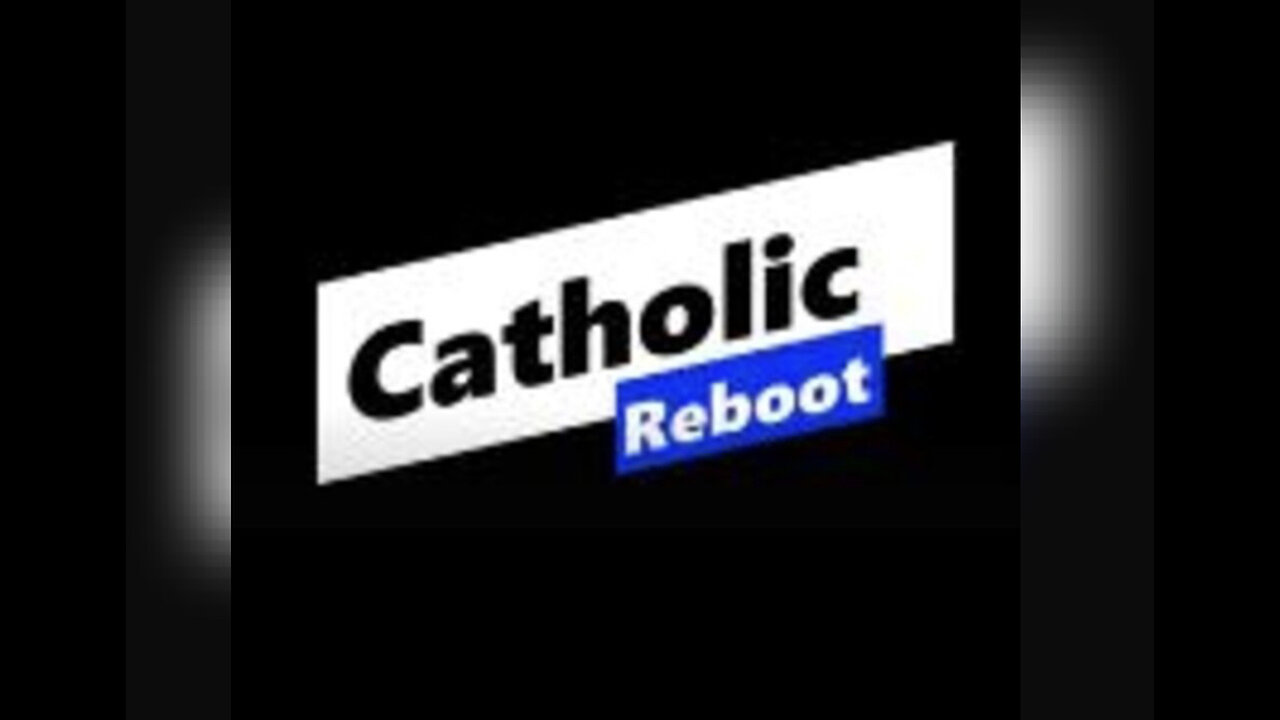
Episode 980: Reasons for Catholics Condemning Freemasonry - Part 1
Reasons for the Catholic Church Condemning Freemasonry – Part 1
In the mid 18th century rumors were circulating in French circles that the Pope was about to revoke Clement XII’s Bull In Eminenti Apostolatus against freemasonry. To squelch those rumors, Benedict XIV issued the Bull Providas Romanorum Pontificum in May 1751. It reiterated the wording of Clement XII's document in order to make it very evident that the condemnation of Freemasonry was irrevocable and was to be applied to the future as well as to the present.
Below is an excerpt of Providas Romanum Pontificum.
Benedict XIV pope from 1740 to 1758.
In order to prevent anyone from saying that We have imprudently omitted anything to swiftly eradicate the pretext of deceitful calumnies and silence them, after heeding the counsel of some of Our Brother Cardinals of the Holy Roman Church, We confirm the same Constitution of Our Predecessor [In Eminenti Apostolatus], word for word, as set out above, which must be considered the broadest and more efficacious on the matter: In our full knowledge and in the plenitude of Our Apostolic authority We confirm it, validate it, renew it and desire and decree that it must have perpetual force and efficacy in all things, according to its content, as if it had been promulgated by Our motu proprio and with Our authority and had been published the first time by Us.
Truly, among the most grave reasons for the prohibitions and condemnations set forth in the mentioned Constitution, there is one whereby in such society [Freemasonry] and secret meetings men of all religions or sects can join together in close gatherings; it is clear that this can harm the purity of the Catholic Religion.
The second reason is the strict and impenetrable promise of secrecy, which forces one to hide what he does in those meetings, to which one can properly apply this saying of Cecilio Natale to Minucio Felice on a different topic: 'Honest things always love the public light; the evil ones are secret.'
The third reason is the secret oath by which one [a member of Freemasonry] commits to inviolably observe, in such a way that it is permited for him when questioned by a legitimate power, to use any excuse - be it a promise or an oath - to avoid the obligation of confessing everything asked of him in order to know whether anything in those secret meetings is done contrary to the stability and the laws of Religion and the Republic.
The fourth reason is that these Societies are opposed to both Civil and Canonic sanctions, taking into account that Civil Law prohibits gatherings and meetings without the permission of the public authority, as one reads in the Pandette (book 47, tit. 22, De Collegis et corposibus illicitis) and in the famous letter of C. Plinio Cecilio (n. 97 of book 10), who reports that it was forbidden by his edict, under the direct command of the Emperor, for Eterie to take place, that is, for societies and meetings to exist and gather without the authorization of the Emperor.
August 14, 1941, Auschwitz concentration
Maximilian Kolbe to the Masons:
You Are Controlled by the Jews
Editorial on the Santa Iglesia Militante Blog
In 1917 Maximilian Kolbe founded the Militia of the Immaculata. His fight was not turned toward killing the enemies of the Church, but aimed to convert them so they could achieve eternal salvation. It is in this spirit that he addressed his enemies.
Talmud
The Talmud: a collection of anti-Catholic instructions
In an article titled “The Poor Ones” he describes the hatred expressed for Christ and His Church in The Talmud: “Man was redeemed, and Christ founded His Church upon a rock. Some of the Hebrew people recognized Him as the Messiah, but others – among them principally the Pharisees – did not want to recognize Him. Instead, they persecuted His followers and issued numerous laws obliging the Jews to persecute the Christians. These laws, together with stories and appendixes, became their sacred book called The Talmud around the year 500.
“In this book Christians are called idolaters, worse than Turks, murderers, impure libertines; they are manure, animals in human form, worse than animals, children of the Devil, etc. Catholic priests are called fortune-tellers and bald-headed dunces … the Church is called a house of stupidity and filth; sacred statues, medals and rosaries are called idols. In The Talmud Sundays and holy days of obligation are considered days of perdition.
“This book teaches, among other things, that a Hebrew can deceive a Christian and steal from him since all the properties of a Christian are – from the text itself – ‘like the desert, the first to take them becomes the owner.’
“This book, written in 12 volumes and breathing hatred against Christ, is considered by these Pharisees a sacred book, more important than Sacred Scriptures.”
At the time of the International Congress of Freemasonry in Bucharest in 1926, Fr. Kolbe wrote the article "Rycerz Niepokalanej" [The Knight of the Immaculate] in which one reads:
Structure of Freemasonry
The secret structure of Freemasonry is controlled by the Jews
“These men [the Freemasons] believe that they are the ones who will rule everything, but let us hear what is written in the Protocols of the Learned Elders of Zion. Protocol n. 11 states: ‘We will create and put in effect the laws and the governments … in opportune moments … by means of national rebellions. … What we want is that the multitudes, disoriented by the revolt, still in a condition of terror and uncertainty, should understand once and for all that we are so strong, so untouchable, so powerful that in no way will we take into account their opinions and wishes. Instead we are ready and able to crush with irresistible power their manifestations at any moment and in every place. … Then, in fear and trembling, they will close their eyes to everything and await the consequences. …
“For what purpose have we created this policy and insinuated it into the minds of the Masons, without giving them any possibility of examining its underlying meaning? ... This is what has served as the basis for our secret organization of Masonry, whose existence is not known or even suspected by these cattle, attracted by us into the army of Masonic lodges.”
Here, Fr. Kolbe directs himself to the Masons, saying, “Freemasons, did you hear this? The Hebrews, who have secretly organized and secretly direct you, consider you as beasts, recruited into the Masonic lodges for ends that you neither know nor suspect … Are you aware, Freemasons, of what awaits those among you who will begin to think for themselves? Listen to this in the same Protocol: ‘Death is the inevitable conclusion of every life … We will execute the Masons in a way that no one can suspect, not even the victims themselves: They will all die at the moment it is deemed necessary, apparently because of common illnesses.’
Kolbe
Fr. Kolbe wanted to save the Jews, but this didn't prevent him from denouncing their conspiracy
The saint Founder continues: “Freemasons, you who recently during the Bucharest Congress were pleased by the fact that Masonry is growing stronger everywhere, reflect well and answer sincerely: Is it not better to serve the Creator with interior peace … rather than to obey the orders of those who hate you?”
Finally, Maximilian Kolbe directs himself to the secret Chiefs of Freemasonry with these words:
“And you, small squadron of Hebrews, the ‘learned elders of Zion,’ who have already consciously provoked so many misfortunes and are preparing yet others, to you I direct this question: What advantage will you gain? … A huge accumulation of gold, pleasures, diversions and power, but none of this makes man happy. And if still it should give some happiness, how long will it last? Ten years perhaps, or twenty … I ask you, Hebrew leaders, you who have let yourselves be seduced by Satan, the enemy of humanity, would it not be better for you also to return sincerely to God?”
In another article of 1926, Fr. Kolbe, again citing the Protocols of the Elders of Zion, wrote: “They say of themselves: ‘Who or what is in a position to overthrow an invisible force? And this is precisely what our force is. Gentile Freemasonry only serves as a screen for us and our objectives, but our plan of action will always remain unknown by the people.”
The Saint then presents his position with subtle irony: “But we are an army whose ‘Commander’ knows each and every one of the enemies, who has observed and observes every one of their hidden actions, each one of their words, and even their very thoughts. Ask yourselves, under such conditions, can one speak of secret plans, clandestine actions and invisibility?”
And here Fr. Kolbe reveals the name of the “Commander” of his army: “It is the Immaculate Virgin, the refuge of sinners, but also the one who tramples the infernal Serpent. She will crush its head!”
The fifth reason is that in many regions and cities, the mentioned societies and groups have already been proscribed and banned by laws of the secular Princes.
Finally, the last reason is that prudent and honest men have faulted the mentioned societies and groups: by their judgment anyone who becomes a member of them incurs a stigma of depravity and perversion.
-
 4:38
4:38
Michael Heaver
10 hours agoShifting UK Triggers Rapid REVOLUTION
230 -
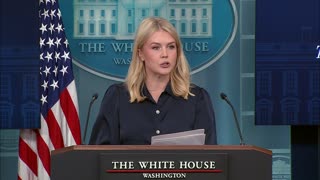 58:53
58:53
The White House
2 hours agoPress Secretary Karoline Leavitt Briefs Members of the Media, July 31, 2025
11.1K19 -
 5:48:07
5:48:07
JuicyJohns
6 hours ago $2.81 earned🟢#1 REBIRTH PLAYER 10.2+ KD🟢$500 GIVEAWAY SATURDAY!
63.1K3 -
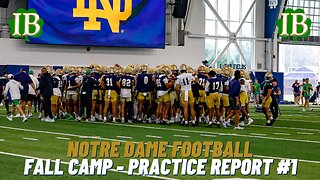 LIVE
LIVE
IrishBreakdown
2 hours agoNotre Dame Fall Camp Practice Report
79 watching -
 1:04:08
1:04:08
Timcast
3 hours agoPelosi MELTS DOWN After Trump Accuses Her Of INSIDER TADING, PELOSI ACT Moves Forward
133K78 -
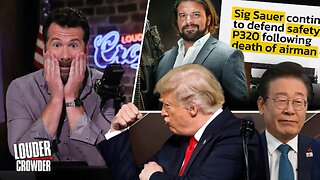 1:54:53
1:54:53
Steven Crowder
5 hours ago🔴 Is the Sig Sauer P320 Killing People & Trump Wins the Trade War: Guest Brandon Herrera
294K232 -
 1:09:57
1:09:57
Rebel News
2 hours agoCanada to recognize Palestine, US trade deadline looms, Charter-protected bike lanes | Rebel Roundup
19.1K9 -
 1:00:16
1:00:16
TheAlecLaceShow
3 hours agoGuest: Roger Stone | Kash Patel Finds Hoax Docs in Secret FBI Room | The Alec Lace Show
14.7K5 -
 1:43:37
1:43:37
The Rubin Report
4 hours agoWhy I’m Taking a Break
50.8K39 -
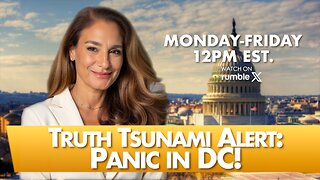 1:36:22
1:36:22
The Mel K Show
3 hours agoMORNINGS WITH MEL K -Truth Tsunami Alert: Panic in DC! 7-31-25
29.3K10